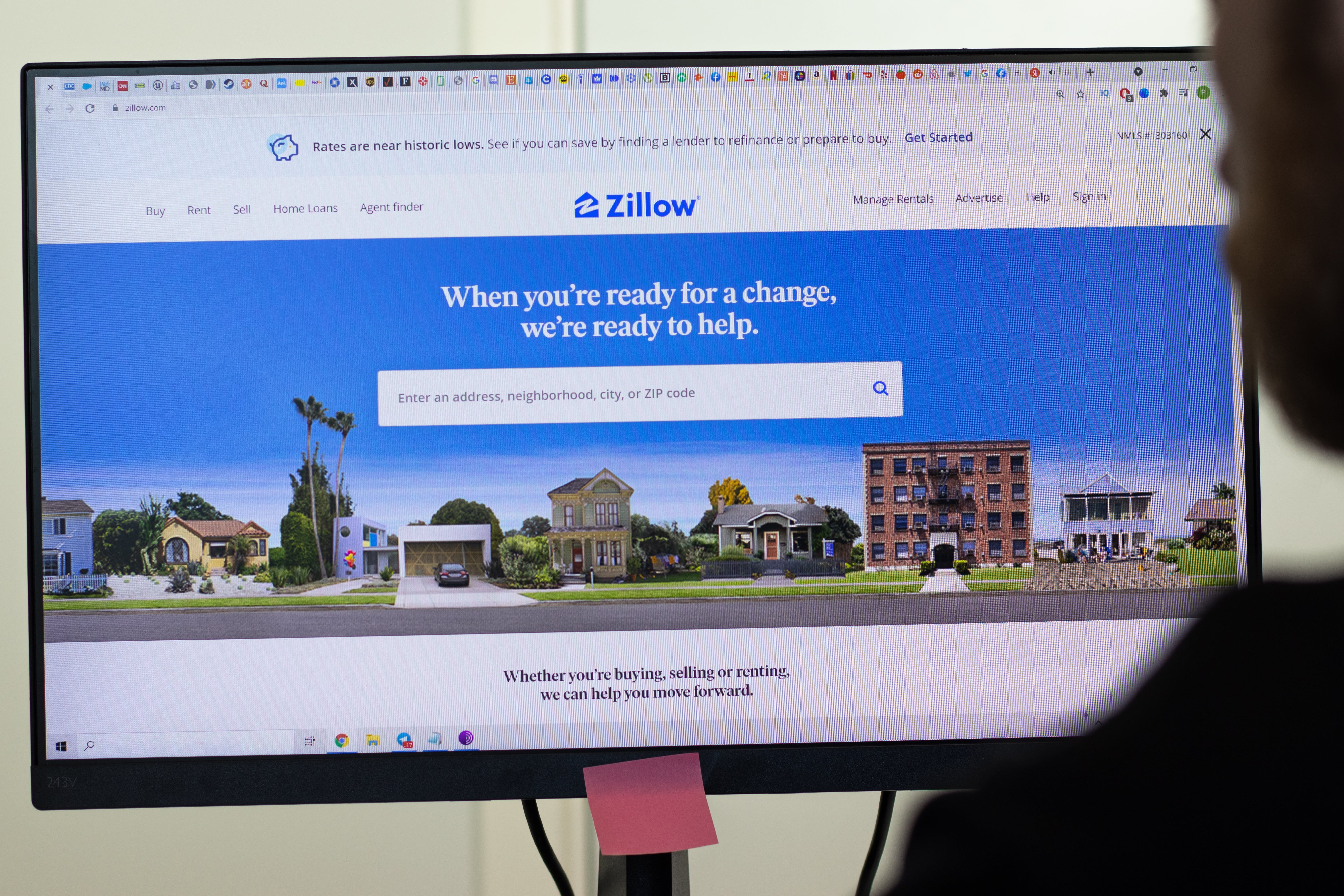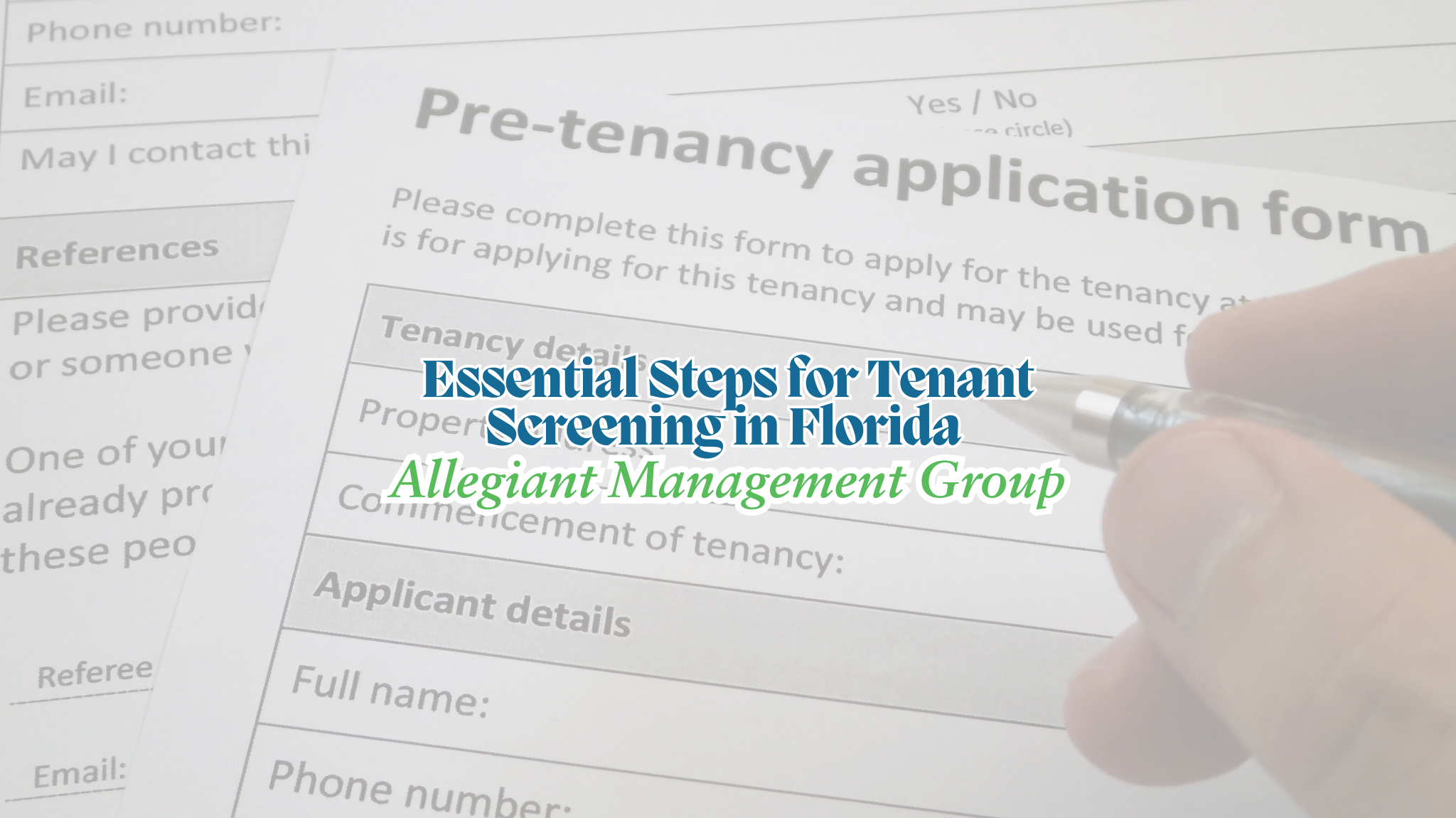Understanding Tenant Screening in Florida

Tenant screening in Florida is a crucial process. It helps a, property managers, and real estate agents protect their investments.
However, it's not just about finding a dependable tenant. It's also about understanding and complying with the legal aspects of property management.
This article aims to guide you through the essential steps of tenant screening in Florida. It will provide practical solutions to common challenges faced by property owners and real estate agents.
We'll delve into topics such as tenant credit checks, criminal background checks, and the use of tenant screening services. We'll also discuss what to look for when screening tenants and how to handle tenant rejections legally.
By the end of this article, you'll have a comprehensive understanding of tenant screening best practices in Florida. You'll be equipped to make informed decisions that protect your property and comply with the law.
Understanding Florida's Tenant Screening Laws
Understanding tenant screening laws is essential for property owners in Florida. These laws help ensure that the screening process is fair and legal.
Florida's laws are designed to protect both landlords and tenants. By adhering to these, you minimize the risk of legal challenges.
Property owners need to conduct their screening with a thorough knowledge of applicable laws. This avoids discrimination and other legal pitfalls.
Education on tenant screening laws is not just advisable; it is crucial. It empowers landlords to make informed, legally-sound decisions.
Fair Housing Act Compliance

Compliance with the Fair Housing Act is mandatory for all property owners. This federal law prohibits discrimination during tenant screening.
Landlords must ensure their practices do not discriminate against any protected class. These include race, gender, and disability.
Following Fair Housing guidelines is vital. It ensures a fair process for all applicants and helps avoid costly legal issues.
Legal Use of Credit and Criminal Background Information

Credit and criminal background checks are vital in tenant screening. However, their use must comply with legal standards.
In Florida, landlords can use credit scores to assess financial reliability. Yet, this must be done within legal boundaries.
For criminal background checks, landlords must understand the relevance of various offenses. This means making decisions based on current legal guidelines.
Consultation with a legal expert can aid in interpreting these standards. Properly conducted checks ensure fair and lawful screening.
Crafting a Tenant Screening Policy
A well-crafted tenant screening policy is essential for any property owner. It sets the groundwork for consistent and fair assessment of applicants.
This policy should clearly outline the criteria and processes used to evaluate potential tenants. Transparency in these criteria helps both landlords and applicants.
Creating a formalized policy minimizes the risk of subjective decision-making. It enhances fairness and reduces the chance of discrimination claims.
Consistency to Avoid Discrimination Claims
Consistency in screening is crucial to avoiding discrimination claims. Applying the same standards to every applicant reduces the risk of legal issues.
Treating each application equally, in line with established criteria, is vital. This consistency builds trust and ensures compliance with the law.
Regular policy reviews help maintain adherence to legal standards. Keeping up to date with regulations ensures continued compliance and fairness.
Advertising Your Rental Property

Attracting a broad pool of applicants begins with effective advertising. Ensure your property description is detailed and honest.
Highlight key features of the property. Describe amenities, location benefits, and rental terms to attract interested tenants.
Use various platforms for advertising, such as Zillow, Trulia, & Hotpads. Online listings, local newspapers, and signage in the neighborhood can widen your reach.
The Rental Application Process

A structured rental application process is crucial. It begins with providing a detailed application form.
Request consistent information from each applicant. This ensures fairness and aids comparison.
Ensure the process is straightforward. Make your criteria clear to avoid misunderstandings and to streamline decision-making.
Gathering Essential Information

In the application, gather key tenant information. Include personal details, employment history, and rental background.
Ask for references from previous landlords. This helps in assessing the tenant’s past rental behavior.
Including a section for income verification is essential. It helps determine if the applicant can afford the rent.
Conducting Tenant Credit Checks
Credit checks are vital to tenant screening. They give insights into a prospective tenant's financial responsibility.
Ensure you have written consent to pull a credit report. This is a legal requirement and protects your practice.
Examine their payment history and outstanding debts. Look for consistent bill payments and manageable debt levels.
Be mindful of legal constraints regarding credit use in tenant selection. Stay within Florida's legal guidelines to avoid issues.
Interpreting Credit Reports
Interpreting credit reports is more than checking the score. Look for patterns in payments and financial behavior.
Focus on any reported delinquencies or bankruptcies. These can indicate potential risks in tenancy.
Keep in mind that a credit score is not the only important factor. Context matters; consider the broader financial picture before making a decision.
Tenant Criminal Background Checks

Criminal background checks are crucial for securing your property. They help identify any history of criminal activity.
In Florida, tenant criminal background checks must comply with federal and state laws. It is important to only consider relevant offenses.
Focus on crimes that might impact the safety and security of your property and other tenants. Not all convictions are relevant to tenancy.
Communicate your screening policies clearly to applicants. Transparency about what you are looking for creates trust and fairness.
Ensuring Safety and Legal Compliance
Safety and legal compliance are top priorities in criminal checks. Always use legitimate sources to gather background information.
Avoid blanket bans on applicants with criminal records. Focus on how recent and serious the offenses are.
Document your findings and decisions carefully. This ensures you have a record of your screening process, protecting you from legal issues.
Tenant Background Checks: Rental History and Employment
Checking a tenant's rental history is a vital step. It provides insight into their past behavior as a tenant.
Look into previous rental addresses and any issues with past landlords. Consistent on-time payments are a good sign.
Employment verification is equally crucial. It confirms the tenant can afford the rent consistently.
Focus on the length of employment and income stability. These factors help assess financial reliability and responsibility.
Contacting References and Verifying Information

Gather references from past landlords and current employers. This helps confirm details provided by the tenant.
Ask specific questions about punctuality with rent and compliance with lease terms. This provides a clearer picture.
Verify information to ensure authenticity. Trust but verify to maintain the integrity of the screening process.
Utilizing Tenant Screening Services

Tenant screening services are a valuable tool for property owners. They streamline the process and save time.
These services provide detailed reports about potential tenants. This includes credit, criminal, and rental history checks.
Choose a service that aligns with your needs. This ensures you get accurate and reliable information.
Evaluating Service Providers
Not all screening services are equal. Evaluate them based on accuracy and compliance with laws.
Look for services with positive reviews and comprehensive reports. Prioritize those known for thoroughness and reliability.
Ensure they adhere to Florida laws. This protects you from legal issues and ensures a smooth screening process.
Making the Decision: Accepting or Denying Tenants

After gathering all necessary information, it's time to make a decision. Consider all aspects of the applicant’s profile.
Evaluate their financial stability, rental history, and references. Make sure to weigh each factor carefully.
Remember, the goal is to find a dependable tenant who will respect your property. This decision greatly impacts your investment.
Legal Grounds for Tenant Denial in Florida
Florida law sets strict guidelines on tenant denial. Denial cannot be based on discriminatory reasons.
Legal grounds include poor credit, negative references, or false information. Always document your reasons for denying a tenant.
Proper documentation ensures compliance and can protect you from potential lawsuits. Following the law is crucial in maintaining fair practices.
Conclusion: Best Practices for Tenant Screening in Florida
Tenant screening is vital for safeguarding your property investment. By following best practices, you can find reliable tenants.
Always comply with Florida’s legal requirements. This helps you avoid costly legal issues and ensures a fair process.
Use tenant screening services to streamline procedures. This provides thorough checks while saving you time and effort.
Staying informed about laws and regulations is essential. This allows for adjustments to your screening strategy as needed.
Ultimately, a consistent and fair approach yields the best results. This ensures a positive experience for both you and your tenants.
Expert Tenant Placement & Tenant Screening Florida Property Management
If you're looking for expert assistance in tenant screening, consider partnering with Allegiant Management Group. Our team is dedicated to helping property owners navigate the complexities of tenant screening. Florida property management at its finest. We offer comprehensive services that include credit and criminal background checks, rental history verification, and employment confirmation.
With our knowledge, you can make sure that your screening process is both efficient and follows all legal rules. Let us help you find the right tenants while protecting your investment and maintaining peace of mind. Contact us today.
Frequently Asked Questions (FAQs) - Tenant Screening & Tenant Placement
Can i deny a tenant just because?
You cannot deny a tenant “just because.” Denials must follow Fair Housing laws, which prohibit discrimination based on race, religion, gender, disability, and other protected classes. You can deny for valid reasons like poor credit, insufficient income, or bad rental history—if applied consistently.
What is considered a valid reason to deny a tenant in Florida?
Valid reasons to deny a tenant in Florida include low credit scores, insufficient income, prior evictions, criminal history, or negative landlord references. Denials must be applied consistently and comply with Fair Housing laws—discrimination based on protected classes is illegal.
Do I need to notify a tenant if I deny their application?
Yes, you must notify a tenant if you deny their application, especially if the denial involves credit information. Under the Fair Credit Reporting Act (FCRA), you must send an adverse action notice explaining the reason and providing the credit agency’s contact details.
Can I consider criminal records during screening?
Yes, you can consider criminal records during screening, but you must apply the policy uniformly. Blanket bans may violate Fair Housing laws. Focus on convictions, not arrests, and evaluate how recent and relevant the offense is to the rental property’s safety
Can I charge an application fee?
Yes, Florida landlords can charge a non-refundable application fee. The fee must be reasonable and disclosed upfront. While no state cap exists, excessive fees may be challenged. Always provide a receipt and apply the same fee to all applicants.
What questions should i ask on a rental application?
Ask for full name, contact info, Social Security number, employment details, income, rental history, references, and consent for background checks. Avoid questions about race, religion, disability, or other protected classes to comply with Fair Housing laws.
What questions should i not ask on a rental application?
Do not ask about race, religion, national origin, disability, marital status, sexual orientation, or family status. These violate Fair Housing laws. Avoid questions about mental health, pregnancy, or citizenship unless legally required. Stick to financial and rental qualifications only.
Disclaimer: This blog is for general information only. It’s not legal advice. For help with your specific situation, talk to a Florida attorney. Allegiant Management Group is not responsible for how this information is used.



